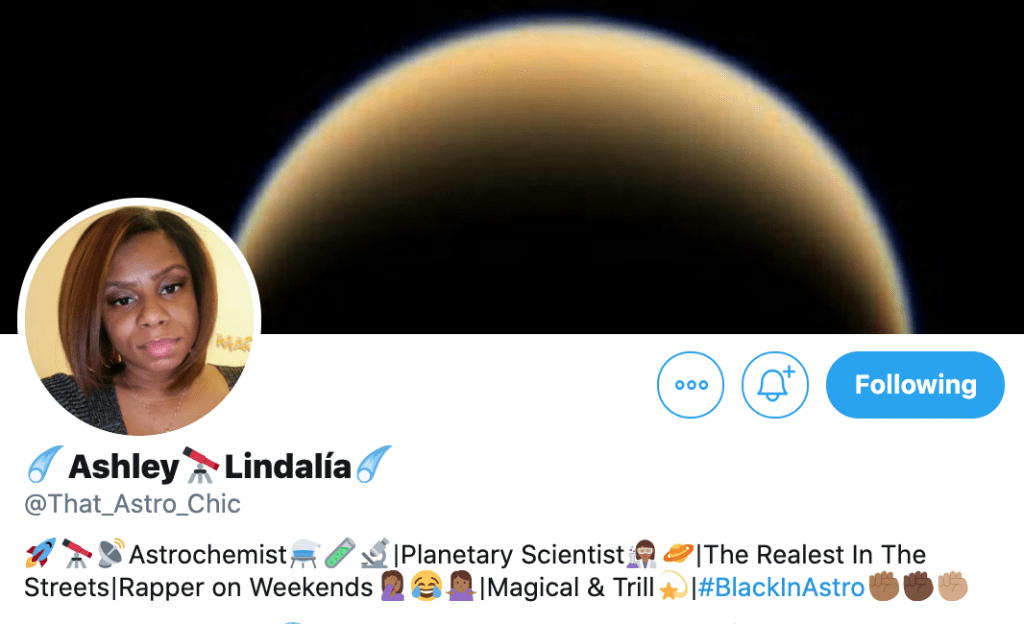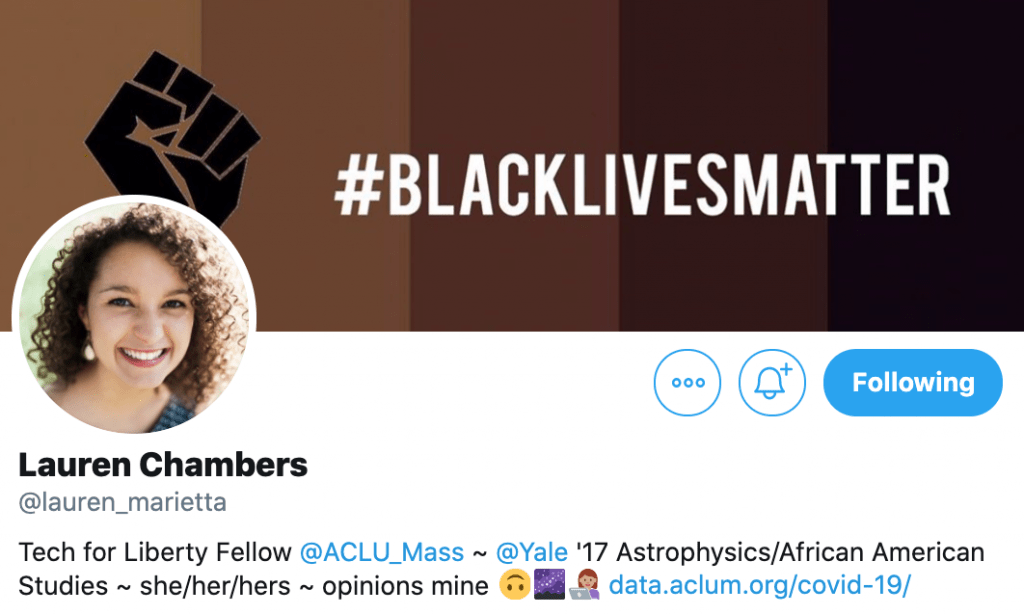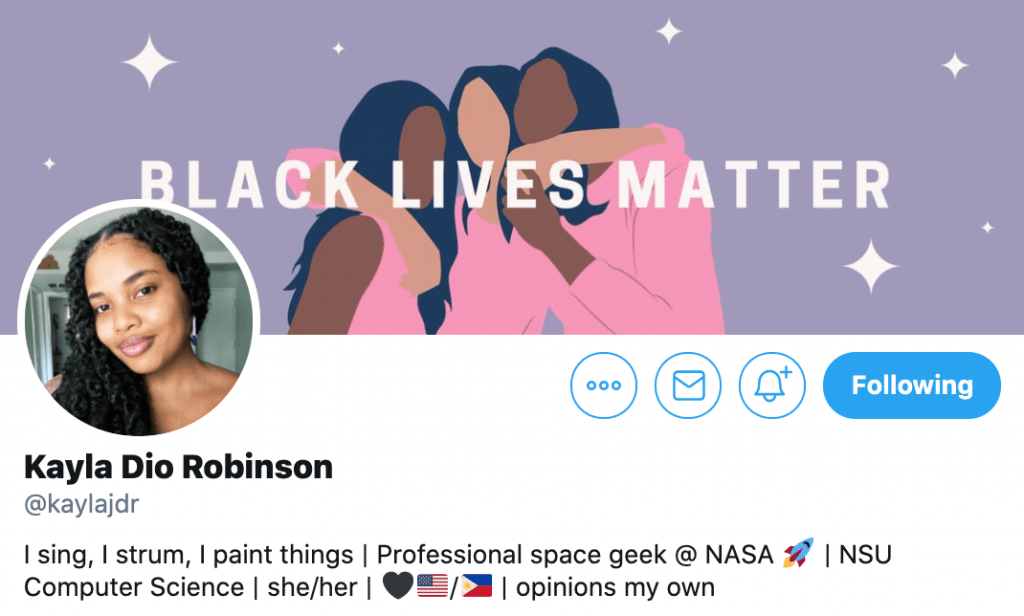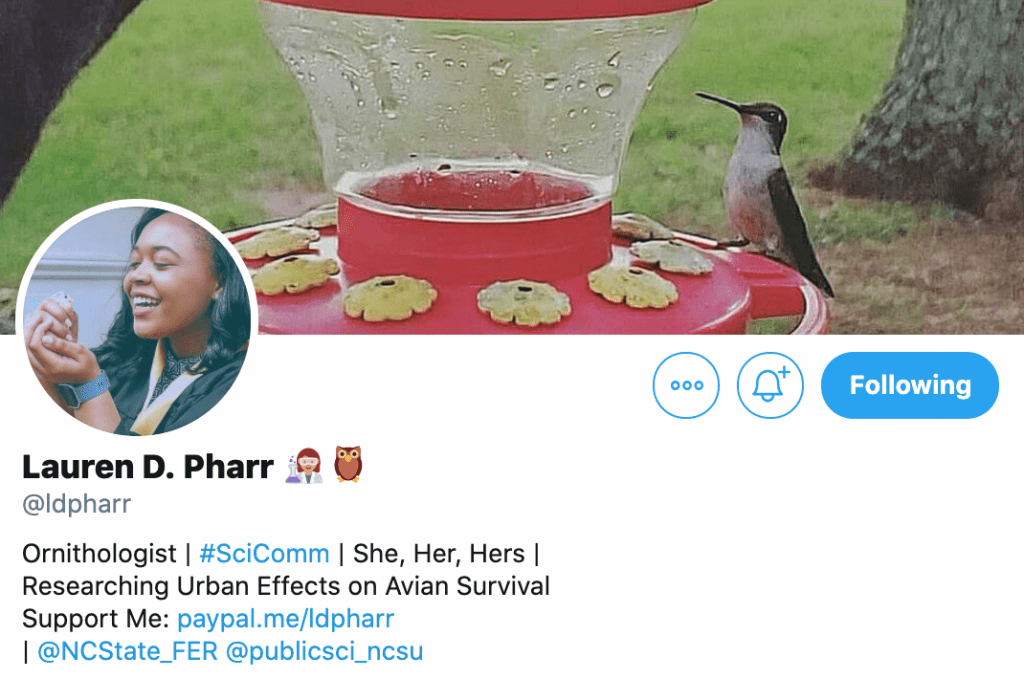
Feature Friday: Tweeters of Colour
If any of you have taken our subjects, you’ll know we heavily recommend using Twitter to talk about science. It’s an awesome way to practice writing about your research, as well as a great way to network with other scientists and see what people are saying in your field.
It’s also a platform for people to share their political and social views. Currently, the global #BlackLivesMatter movement has (rightfully) taken the Twittersphere by storm. Voices that have been suppressed, discriminated against or ignored are finally getting the air-time they deserve. And with it, has been a surge in the voices of people of colour within Science, Technology, Engineering and Maths (STEM) professions and studies.
I thought I’d do something a little different this Feature Friday, and share three powerful Twitter trends that have surfaced within the STEM world recently as part of the #BlackLivesMatter movement. I’ve also made a short list of Tweeters of colour who were active in these trends.
So without further ado, fire up the app with the blue bird and let’s get Tweeting!
#BlackinAstro
#BlackinAstro highlights the underrepresentation of Black women in astronomy and physics. Amongst US citizens, only 2% of physics PhDs were awarded to Black students in 2012. Discrimination is a huge reason for this underrepresentation, with 62% of Black STEM professionals report that they have experienced racial discrimination in the workplace. This article talks deeper to the issue and impact of discrimination within astrophysics. See this page if you’re wondering how you can support Black astronomers.
So, who should you be following?
Ashley Lindalía (@That_Astro_Chic) was the first astrochemist at Chicago State, and started the #BlackInAstro hashtag. Read more about her in this article published on Astrobites.org. She also shared “Black Astronomers You Should Know”, a collection of Twitter shoutouts to Black junior astronomers throughout February in honour of Black History Month.
Lauren Chambers (@lauren_marietta) studied Astrophysics and wrote a powerful article about her experience of racism within astronomy academia called “A Break-up Letter with Astronomy, From a Young Black Woman”
Moiya McTier (@GoAstroMo) is an astrophysicist who’s a loud and proud SciCommer. Yesterday she tweeted a video calling Jimmy Fallon out for having “astrophysicist” as his Twitter bio, and lobbies her case for why he should invite her as a guest onto his show!
Kayla Dio Robinson (@kaylajdr) is a computer science student who was a recent intern with NASA, and wrote about her experience on her blog.
#BlackBirder
#BirdingWhileBlack and #BlackBirder celebrate the work of people in colour in birdwatching and wildlife science – a field traditionally dominated by white males. The racism within this field was brought to media attention with the Central Park Birdwatching incident, where a white woman was caught on video verbally abusing Christian Cooper, a black birdwatcher in Central Park.
#BlackBirdersWeek was a recent series of online events from May 31 to June 5 to promote awareness of racism in the field, and share the work of people of colour within ornithology (the study of birds).
Some Tweeters (pun intended?) to follow are:
Corina Newsome (@hood_naturalist) is a biologist who helped organise the Black Birders Week. Read more about her in this recent article in The New Yorker.
Deja Perkins (@naturallywild_) is studying urban ecology and is another co-founder of the Black Birders Week. She’s also been featured in a news article on WTTW about her work in changing the face of Urban Ecology.
Lauren D. Pharr (@ldpharr) is an ornithologist who was featured recently on eBird talking about her journey into wildlife biology, bird science and science communication.
Murry Burgess (@BurgessMurry) is a wildlife biologist and ornithologist who was recently featured in an article in Discover Magazine alongside Deja Perkins and Lauren D. Pharr talking about their experiences of racism within biology and field sciences.

#ShutDownSTEM and #BlackintheIvory
You might have heard of, or have been a part of #ShutDownSTEM or #ShutDownAcademia on June 10, 2020. This was a strike across STEM and academia to raise awareness for the global racism within these communities. Although this event has already passed, it’s also about making long-term change. See the #ShutDownSTEM website for advice on developing your plan for action. Read more about the Strike for Black Lives on the Particles for Justice website, and check out their Resources page whilst you’re there.
Amid the strike, people have been tweeting their stories of firsthand racism in the “ivory tower” of academia, which has become the hashtag #BlackintheIvory.
And although it’s not a Twitter trend, I just had to share this powerful anonymous first-hand account of racism in academia called “It’s lonely being a Black scientist” on Massive Science.
Below are some of the women behind these movements:
Brittany Kamai (@cosmojellyfish) co-organised the #ShutDownSTEM moment in support of Black Lives Matter. Watch her talk about her experience of racism in science, and what needs to happen to bring about change in an interview with Global Science TV on Youtube.
Shardé M. Davis (@DrShardeDavis) co-founded the #BlackintheIvory hashtag, and is raising money to support Black graduate students via Twitter.
Joy Melody Woods (@smileitsjoy) is a communication studies doctoral student who also co-founded the #BlackintheIvory hashtag, and was recently featured in an article in The Daily Texan.
Well folks there are the three trends I wanted to share with you today. I hope this brings some diversity to your feed, and if you aren’t already, please make a conscious effort to share the work and voices of people of colour.
Please comment any relevant hashtags or Tweeters you find below!
– Written by Rosie Arnold
Categories










